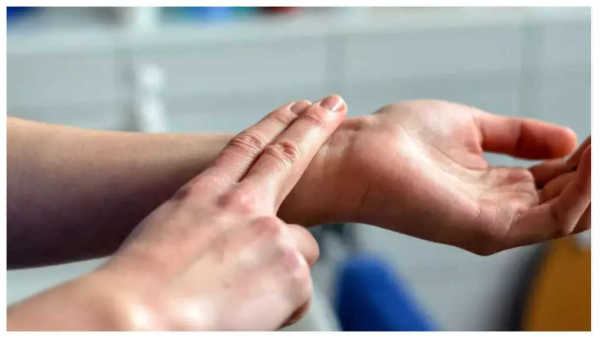When it comes to heart health, we often hear of the word Arrhythmia . In simple words, an Arrhythmia is an abnormal heartbeat rhythm, where the heart beats too fast, too slow, or erratic. (feels like a fluttering in the chest) While most arrhythmias are harmless, and can occur due to stress, anxiety or even excitement, others cause problems such as dizziness, fainting or even heart failure. One of the easiest ways to check for arrhythmia, is by checking your pulse at home to rule out, prevent or diagnose any issues. Let’s learn more on this condition…
What is a normal pulse
A pulse is the number of beats your heart beats in one minute at rest (while sitting, or lying down) and is usually considered normal in the 60-100 range, though it can vary due to age, underlying health conditions, and activity level. However, most cardiologists recommend a lower heart rate (under 80) to be optimum for cardiac health. The lower your resting heart rate is, the better your cardiovascular health is considered.
 How to check your pulse
How to check your pulse
Many smart watches, and even fitness rings, can tell your , but if you don’t have one, do this. Place your index and middle fingers on the side of your wrist, below the base of your thumb. Press gently until you feel the beat. Count the beats for 30 seconds with a watch or timer, then multiply by two to get beats, per minute. While doing this, also observe if the beats are evenly spaced, or irregular – you might feel like you have skipped a beat, or a fluttering sensation. Irregular beats need more assessment, because irregular beats can indicate an arrhythmia.
Signs of an irregular pulse
When recording your heartbeat, look out for skipped beats, extra beats, or long pauses between beats, that can feel like fluttering, racing or pounding in the . These are often signs of premature atrial or ventricular contractions, which can be harmless otherwise, but also indicate arrhythmia.
When to seek medical help
If you ever feel chest pain, shortness of breath, fainting or a fast or very slow pulse, seek emergency care away. Chest pain, shortness of breath fainting or a fast or very slow pulse, might indicate a life‑threatening arrhythmia, or even or a heart attack, especially if you have Hypertension/Diabetes, and are taking medication for it. Even a mild but persistent irregular pulse, should be checked by a cardiologist. A cardiologist can perform an electrocardiogram (ECG) to diagnose the pulse and to start treatment early.
Lifestyle changes to prevent Arrhythmia
While some Arrhythmias require a medical evaluation and treatment, there are many other things one can do to keep heart healthy. However, please note that these are just preventive measures, and are not a substitute for medication (if prescribed)
Exercise: As we all know, the heart is a muscle, and like all muscles, it needs exercise to work well. Exercise for at least 150 minutes each week, or more if you can. Both cardio and strength training, is excellent for your heart.
Diet: Consume a diet that is low in salt, trans fats and processed foods. Load your plate with veggies, legumes, nuts and proteins like tofu, cottage cheese, eggs, and lean meats. Stay away from too much coffee and alcohol.
Smoking: If you smoke, quit immediately. No amount of nicotine is safe for your body.
Bring the weight down: Lose weight if you are overweight, and keep your Blood Pressure/Blood Sugar in control.
How technology helps
Besides home pulse checks, portable devices and apps can also record your heart’s rhythm. There are many portable ECG monitors, that capture electrical activity. If used in the right way, these tools can detect arrhythmias in the right manner, and help patients monitor their heart condition at home.
How to manage arrhythmias
Some arrhythmias cause no symptoms, and are caught only in a regular cardiac exam. When the symptoms do appear, they include pounding heartbeats, or racing heartbeats. The symptoms may also include chest pain, dizziness, shortness of breath, sweating or fatigue.
Disclaimer: This article is informational only and not a substitute for medical advice

